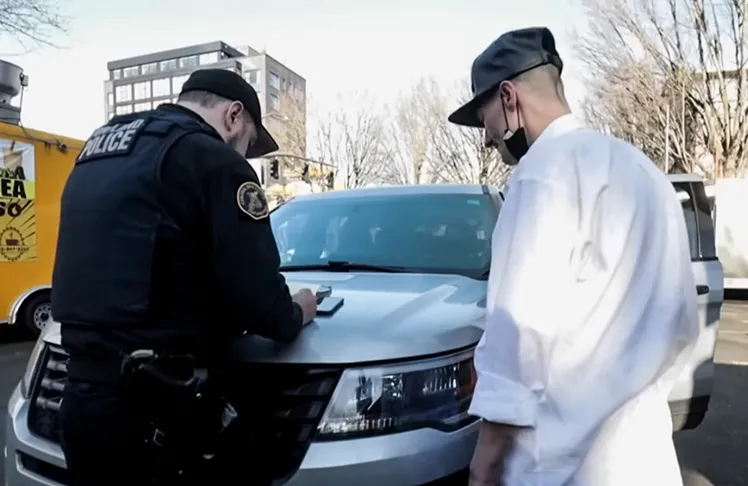
Oregon’s experiment with drug decriminalization officially came to a close on Sunday, as a new law reinstated criminal penalties for the possession of small amounts of hard drugs. The Democratic-controlled Legislature passed the law in March, reversing a 2020 measure approved by 58 percent of voters that had made drug possession punishable only by a ticket and a maximum $100 fine.
Leadership was weak on the groundbreaking law that put drug use in the treatment field and out of the criminal justice realm which has padded the pockets of law enforcement while using tough laws to incarcerated Blacks and poor people.
This new legislation, supported by Republican lawmakers who long opposed decriminalization, classifies personal use possession as a misdemeanor, carrying a potential penalty of up to six months in jail. The law aims to empower law enforcement to tackle drug use in public spaces more effectively and introduces stricter penalties for drug sales near sensitive locations, such as parks.
The original decriminalization measure, which directed significant cannabis tax revenue toward addiction services, faced challenges in implementation. State auditors reported that the funds were slow to be allocated, coinciding with a surge in overdose deaths, particularly related to fentanyl, during the COVID-19 pandemic. Critics argue that the previous approach of criminalizing drug use has proven ineffective and that treatment should be prioritized over incarceration.
While the new law offers alternative treatment programs for individuals facing drug charges, it stops short of mandating their establishment. Instead, it encourages counties to create programs tailored to their unique resources. This flexibility has raised concerns among opponents, who fear it may lead to an inconsistent and inequitable system across the state.
So far, 28 of Oregon’s 36 counties have applied for grants to fund “deflection programs,” which aim to redirect individuals from the criminal justice system to addiction and mental health services. The Oregon Criminal Justice Commission plans to distribute over $20 million in these grants within the coming year.
Oregon House Republican Minority Leader Jeff Helfrich, who supported the new law, expressed apprehension about the timeline for counties to implement their programs effectively. In some areas, individuals suspected of low-level public offenses alongside drug possession may be eligible for deflection, while many counties are opting to postpone drug possession charges during program completion.
Kellen Russoniello, director of public health at the Drug Policy Alliance, highlighted concerns about the potential strain on Oregon’s legal system due to an influx of new drug cases. He emphasized the necessity of ramping up treatment capacity to ensure the success of any deflection initiatives.
Democratic state Rep. Jason Kropf, one of the law’s key drafters, acknowledged the varying challenges faced by counties and assured that lawmakers would monitor the effectiveness of different regional approaches. “I have optimism and I have hope,” Kropf stated. “I’m also realistic that we have a lot of work ahead of us.”
Over the past four years, Oregon has invested more than $1.5 billion to expand treatment facilities, resulting in over 350 new beds expected to become available next year. However, a recent report from the Oregon Health Authority indicated that the state still requires up to 3,700 additional beds to adequately meet demand and address existing gaps in treatment services.














